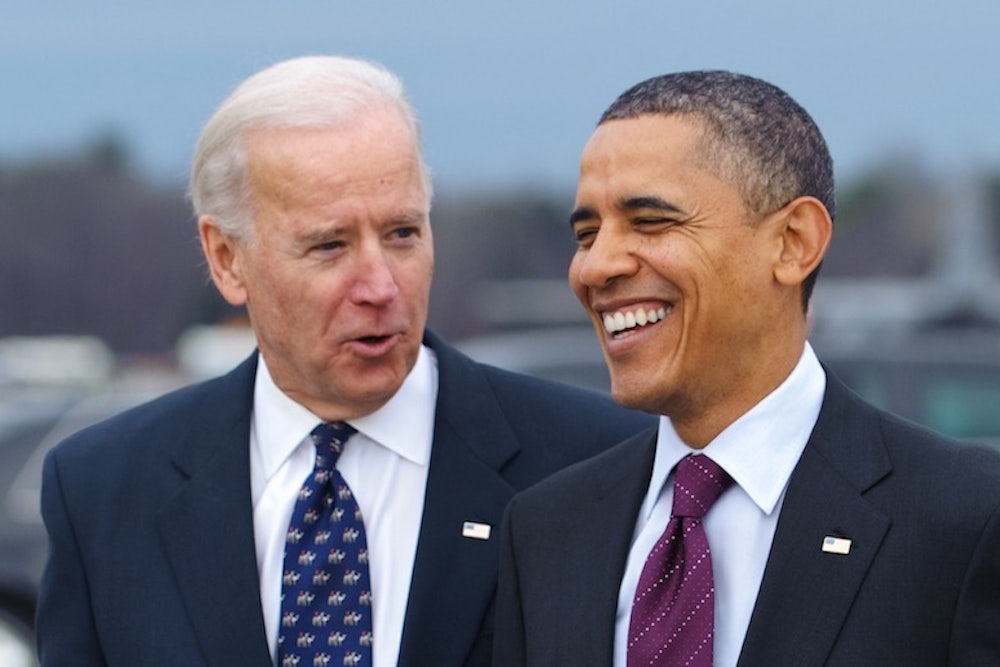Sometimes American presidents emerge with such a grand political or historical victory that the specific details tend to be lost in the retelling. One example might be Ronald Reagan's conduct of the Cold War, which was abysmal everywhere from Africa to Latin America but is now remembered solely for the eventual, astute decision to make peace with Mikhail Gorbachev. Similarly, President Obama's embrace of gay marriage last year is likely to be seen as a giant milestone in the American gay rights movement. But Jo Becker's New York Times Magazine story—excerpted from her new book—details the halting, insincere nature of Obama's long "personal journey" on the road to support for the cause. It may indeed be better to have dishonest politicians who vote against their consciences rather than honest, bigoted lawmakers who will never come around to a sane position. But let's not spend too much time celebrating those who only recently adopted public stances they knew were correct. And let's certainly not listen to them tell stories about their decency and humanity.
Obama's decision to speak in favor of gay marriage two summers ago deserves the plaudits it has received, but some of Becker's reporting is cringe-inducing. Joe Biden is more-or-less the hero of Becker's piece for stating his mind on the subject, and thus unwittingly forcing Obama's hand. Biden and Becker talked well after his comments in favor of same-sex marriage, and Biden told the following story:
He was sitting on the beach in Delaware with his father and some friends when an older gay couple walked over to say hello. His father, a Realtor, had sold them their apartment in a building nearby. The elder Biden hugged both men and said, “Let me introduce you to my family.” One of the younger Biden’s buddies made a derogatory remark about the couple, and his father’s reaction to it stayed with him all these years. “He says: ‘As soon as they get in the apartment, you go up to the ninth floor. You walk up and knock on the door, and you apologize to them.’” When his friend refused, his father said, “Well, goddamn it, you’re not welcome in my house anymore.”
Powerful stuff, as is the following:
Biden then described another day, years later, when his own young son looked up at him quizzically after seeing two men headed off to work kiss each other goodbye on a busy street corner. “I said, ‘They love each other, honey,’ and that was it. So it was never anything that was a struggle in my mind.”
Becker presents these anecdotes as part of Biden's own journey, but both of these stories are quite clearly decades old, and Biden supported the nasty Defense of Marriage Act in 1996 (which she does mention) and remained uncommitted to gay marriage until 2012. And yet he is telling these stories to highlight his own goodness! Moreover, and contra Becker's narrative, which seems to imply that people come to their own "aha" moments on gay rights, the Biden stories don't seem to prove anything about his development or evolution.
With regard to Obama, it's the crassness which is most striking. At a fund-raiser, for example, the President was asked, “Mr. President, how can we help you evolve more quickly?” This was in reference to Obama's almost comically political formulation that he was still "evolving" on the issue. Obama's response: “I think you can tell from what I have done so far the direction that I am headed.” As was the case with Biden, Obama wants credit for holding a position he knows is wrong. That position also shows a certain contempt for voters, as if they couldn't figure out that Obama is being dishonest and, of course, supports gay marriage. Typically, White House political advisors were more concerned with burning issues, such as ensuring it was a woman who interviewed Obama when he revealed his flip-flop. (The Heilemann/Halperin book Double Down has some information on how bizarrely freaked out the White House political team was about the issue.)
As Andrew Sullivan points out, Becker's story feels like history written from the perspective of rich donors and advisors, and very well may overstate the degree to which wealthy Democratic fundraisers—and Ken Mehlman, the former RNC head who is a major character in the piece—were responsible for the advance of gay rights. This is ultimately a triumphant story, but not because politicians finally came to their senses. Instead, activists and citizens made politicians feel safe enough to do what they should have done years earlier.
